This article was co-authored by Kristi Acuna. Kristi Acuna is a Holistic Nutritionist and the Owner of Holistic Nutrition Center in Orange County, California. With over 15 years of experience, Kristi specializes in a comprehensive and holistic approach to nutrition through nutrition response testing, heart rate variability, thermography, and brainspan. She has experience helping with weight gain, fatigue, insomnia, food allergies, diabetes, irritable bowel syndrome, digestion problems, sinus infections, and PMS and menopause symptoms. Kristi holds a BS in Holistic Nutrition from Clayton College of Natural Health. Holistic Nutrition Center focuses on the root cause of health challenges and helps people heal and restore balance to their bodies.
There are 11 references cited in this article, which can be found at the bottom of the page.
wikiHow marks an article as reader-approved once it receives enough positive feedback. In this case, 95% of readers who voted found the article helpful, earning it our reader-approved status.
This article has been viewed 267,285 times.
When there are more natural ways to keep your bad cholesterol down, taking medications seems inorganic and foreign. If you simply want to manage your cholesterol but don't want the fuss of medications (or the symptoms), here are ways to start being heart-healthy today.
Steps
With Diet
-
1Eat garlic. Garlic may help keep your cholesterol levels at a reasonable number. It's possible it can slightly reduce cholesterol levels without causing any side effects, in addition to possibly preventing blood clots, reducing blood pressure, and protecting against infections. Although it is best to take it in raw form, it is equally efficacious in other forms like pickles.[1]
- Next time you hit the supermarket, pick up a tub of freshly peeled garlic cloves, and challenge yourself to make sure it's gone before the "best by" date. Chop up and toss on pizza, in soups, or on side dishes.
-
2Chomp on nuts and seeds. Though they're all great, sunflower seeds are particularly efficacious in keeping the cholesterol levels down. They're full of linoleic acid that may reduce plaque formation, keeping your blood flowing down arterial easy street.[2]
- Walnuts, almonds, and other nuts are good, too; it's not just the sunflower variety. They're generally all full of polyunsaturated fatty acids -- that's the good kind. As long as the nuts aren't coated in salt or sugar, you're good to go. Aim for a handful (1.5 oz; 43 g) a day.
Advertisement -
3Go fish. Eating fatty fish like salmon, mackerel, and herring is heart-healthy due to their high levels of omega-3 fatty acids. Those guys can lower your blood pressure and prevent your blood from clotting. If you've already had a heart attack, they can even reduce the risk of sudden death.[3]
- If you're not quite a chef de cuisine, canned tuna isn't exempt from the omega-3 category. And to go even further, you could always take fish oil supplements -- once you've talked to your doctor, of course. The American Heart Association says the natural source, the fish itself, is better, but something is better than nothing. Alternative sources also include soybeans, canola, flaxseeds, walnuts, and their oils, for our herbivore friends.
-
4Load up on fiber. Not only are fruits, vegetables, and whole grains great for your waistline, but they're wonderfully full of heart-healthy antioxidants and cholesterol-lowering dietary fiber. There are different kinds of fiber, actually, and these three food groups are chock full of the soluble kind -- the kind that sits in your digestive tract and absorbs the cholesterol before it gets to your arteries. Talk about useful.[4]
- It's practically a super-food, oatmeal is. And when it comes to cholesterol, it's full of the soluble fiber that lowers your LDL cholesterol. Aim for 5 to 10 grams (or more!) of fiber a day to reap the cholesterol-lowering effects. If you're curious, 1 1/2 cups of cooked oatmeal ranks in at 6 grams of fiber. Not an oatmeal fan? Kidney beans, apples, pears, and prunes are also high-fiber foods.
-
5Use healthy vegetable oils. Always use oils in your food that are full of good fats, such as olive oil, sunflower oil, or walnut. Cutting down on your saturated and trans fats is imperative to lowering your cholesterol.[5]
- Olive oil is particularly masterful in lowering your LDL levels while not lowering your HDL levels (that's a very good thing). Replace other fats in your diet (butter, shortening, etc.) with olive oil to reap the benefits. Try it with sauteed vegetables, as a salad dressing, or on bread. Delicious, delicious, delicious.
- If you do make the leap, know that extra-virgin olive oil is even better than the plain ol' regular kind. It's generally less processed and therefore has more nutrients and anti-oxidants. And when you see an olive oil that's light in color, know that that does not mean light in calories or fat -- it just means more processed.
- Olive oil is particularly masterful in lowering your LDL levels while not lowering your HDL levels (that's a very good thing). Replace other fats in your diet (butter, shortening, etc.) with olive oil to reap the benefits. Try it with sauteed vegetables, as a salad dressing, or on bread. Delicious, delicious, delicious.
-
6Munch on raw fruits and veggies. Raw vegetables are always a better source of fiber and antioxidants than cooked ones. When they're raw, they maintain all their vitamins and nutrients -- all the stuff that's good for you. The good stuff gets cooked away when heated.[6]
- Turn your main dishes into vegetarian ones -- casseroles, lasagnas, soups and stir-fries are all easy to make sans meat. And as for fruit, try to keep it fresh -- dried fruit often has more calories. If you do have a penchant for the dried kind, however, keep it to a handful.
- Spinach is a great source of lutein, which has recently been found to help shrug off cholesterol invaders. Shoot for 1/2 cup (100 g) a day to reap the benefits.
- What's more, fruits and veggies are low calorie and low fat. Cutting back on saturated fats (which can also be done by consuming soy products) helps your heart and reduces LDL cholesterol.
With Exercise
-
1Keep fit. Include as much exercise as your physical condition allows. Physical activity increases the body's flexibility and helps pump the blood through your arteries. And of course, follow your doctor's advice too.[7]
- Choose a form of exercise you can do for 10-20 minutes at a time, with at least moderate intensity, such as walking, biking, swimming, jogging, or using an exercise machine at low speed.
- First, exercise stimulates enzymes that help move LDL from the blood (and blood-vessel walls) to the liver. From there, the cholesterol is converted into bile (for digestion) or excreted. So the more you exercise, the more LDL your body expels.
- Second, exercise increases the size of the protein particles that carry cholesterol through the blood. That's a good thing -- the smaller, denser ones burrow into the lining of your heart and start clogging away. How's that for a mental image?
- Choose a form of exercise you can do for 10-20 minutes at a time, with at least moderate intensity, such as walking, biking, swimming, jogging, or using an exercise machine at low speed.
-
2Lose weight. It doesn't have to be a lot, either. If you lose just 5 to 10% of your weight, your cholesterol levels could reduce greatly. Not to mention the scads of other health benefits![8]
- Watch your calories. There are no ifs, ands, or buts about it: An increased caloric intake will lead to weight gain. Keep a balanced diet of fruits, vegetables, whole grains, lean meats and low-fat dairy. Stick to good fats (like the ones in avocados, nuts, and olive oil) and cut out the processed junk.
- Try to incorporate activity into your daily endeavors. Opt for the stairs instead of the elevator, make taking the dog for a walk a pre-dinner activity, and bike to do an errand or two. Exercise doesn't always have to be a formal "workout" session if your schedule or body doesn't allow for it.
The Extra Mile
-
1Understand the nature of cholesterol. Cholesterol is a fatty substance which is an essential ingredient of the body used in various metabolic activities of the body. However, when it exceeds the normal limits (150-200 mg/dL blood), it poses a serious threat to the arteries and heart. It can be successfully regulated and treated by means of slight changes in your diet.[9]
- Cholesterol can't dissolve in the blood. It has to be transported to and from the cells by carriers called lipoproteins. Low-density lipoprotein, or LDL, is known as "bad" cholesterol. High-density lipoprotein, or HDL, is known as "good" cholesterol. These two types of lipids, along with triglycerides and Lp(a) cholesterol, make up your total cholesterol count, which can be determined through a blood test.
-
2Talk to your doctor. He or she should be your first opinion. They will be able to tell you what's a good number for you. Your family history and lifestyle will factor into their conclusion. What's more, they can help you stick to a plan.[10]
- Ask them what physical exercise and diet regimen you should be starting. They can help by giving you ideas and telling you the do's and don'ts of maintaining low cholesterol.
-
3Set a target. For each person it's different -- so what's your ideal number? Your doctor will probably ask you a few questions to find out what's right for you. It all depends on your family history, your weight, blood pressure, and lifestyle habits (like smoking and drinking).
- For high-risk patients, a target LDL of less than 70 will likely be advised. If you fall into the moderate category, under 130 may be your number. And if you're one of the lucky ones and your risk is low, less than 160 is acceptable. Whatever branch you fall into, it's best to know earlier rather than later.
-
4Quit smoking. If you smoke, stop. Apart from all the other reasons it's not good for you, it may help to raise your good cholesterol -- the HDL kind. Just 20 minutes after quitting, you'll see a change. Within a day, you're less likely to get a heart attack. If you make it a year, your risk of heart disease gets cut in half. And in 15 years, it's like you never smoked. So, yes, you still have time.[11]
- A person's risk of heart disease and heart attack greatly increases with the number of cigarettes he or she smokes. People who smoke have a two to four times higher chance of having heart disease. And smokers continue to increase their risk of heart attack the longer they smoke. Women who smoke and also take birth control pills increase several times their risk of heart attack, stroke, and peripheral vascular disease
Expert Q&A
-
QuestionHow can I treat familial hypercholesterolemia?
 Kristi AcunaKristi Acuna is a Holistic Nutritionist and the Owner of Holistic Nutrition Center in Orange County, California. With over 15 years of experience, Kristi specializes in a comprehensive and holistic approach to nutrition through nutrition response testing, heart rate variability, thermography, and brainspan. She has experience helping with weight gain, fatigue, insomnia, food allergies, diabetes, irritable bowel syndrome, digestion problems, sinus infections, and PMS and menopause symptoms. Kristi holds a BS in Holistic Nutrition from Clayton College of Natural Health. Holistic Nutrition Center focuses on the root cause of health challenges and helps people heal and restore balance to their bodies.
Kristi AcunaKristi Acuna is a Holistic Nutritionist and the Owner of Holistic Nutrition Center in Orange County, California. With over 15 years of experience, Kristi specializes in a comprehensive and holistic approach to nutrition through nutrition response testing, heart rate variability, thermography, and brainspan. She has experience helping with weight gain, fatigue, insomnia, food allergies, diabetes, irritable bowel syndrome, digestion problems, sinus infections, and PMS and menopause symptoms. Kristi holds a BS in Holistic Nutrition from Clayton College of Natural Health. Holistic Nutrition Center focuses on the root cause of health challenges and helps people heal and restore balance to their bodies.
Holistic Nutritionist A holistic approach would be to assess your diet to see how you can moderate your LDL. Cut sugar and lower starches and carbs from your diet. Also, support healthy HDL levels by eating healthy saturated fats from sources like fatty fish and avocados.
A holistic approach would be to assess your diet to see how you can moderate your LDL. Cut sugar and lower starches and carbs from your diet. Also, support healthy HDL levels by eating healthy saturated fats from sources like fatty fish and avocados.
Warnings
- If you have been prescribed medicine to reduce cholesterol, follow your doctor's advice. Ask if any of the methods in this article can be employed in addition to your medicine.⧼thumbs_response⧽
References
- ↑ https://www.nccih.nih.gov/health/providers/digest/high-cholesterol-and-natural-products-science
- ↑ https://www.ncbi.nlm.nih.gov/pmc/articles/PMC3257681/
- ↑ https://www.nhs.uk/conditions/high-cholesterol/how-to-lower-your-cholesterol/
- ↑ https://academic.oup.com/ajcn/article/69/1/30/4694117
- ↑ https://www.hsph.harvard.edu/nutritionsource/what-should-you-eat/fats-and-cholesterol/
- ↑ https://academic.oup.com/ajcn/article/79/2/213/4690083
- ↑ https://health.clevelandclinic.org/does-exercise-lower-cholesterol/
- ↑ https://health.ucsd.edu/news/releases/Pages/2016-01-28-cholesterol-levels-improve-with-weight-loss-fat-rich-diet.aspx
- ↑ https://medlineplus.gov/cholesterol.html
About This Article
If you want to reduce cholesterol without medicines, you can try changing your diet. Try to add in healthy fats such as nuts, fatty fish like salmon, and olive oil. Make sure to include plenty of fiber as well, like oatmeal, kidney beans, and raw fruits and vegetables, as these foods are also good for lowering cholesterol. Another way to reduce cholesterol without medicines is to do plenty of exercise. Staying fit is a great way to manage your cholesterol levels and walking, biking, and swimming are all good options. Exercise is also a good way to lose weight, which can also help to lower your cholesterol. For more information on reducing cholesterol without medicines, like how to understand your cholesterol levels, read on!
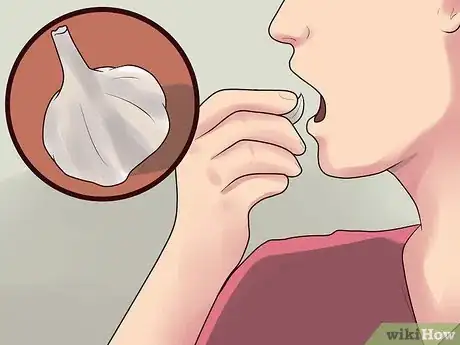

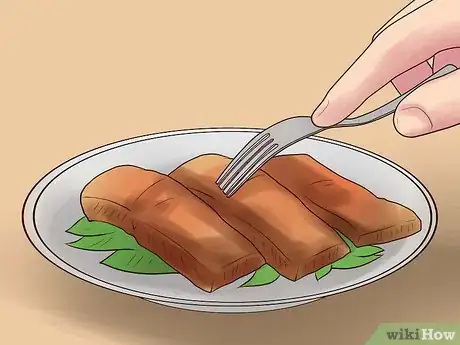






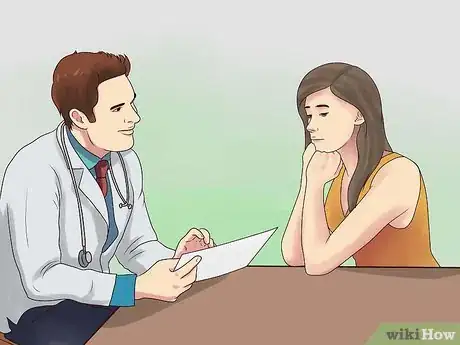

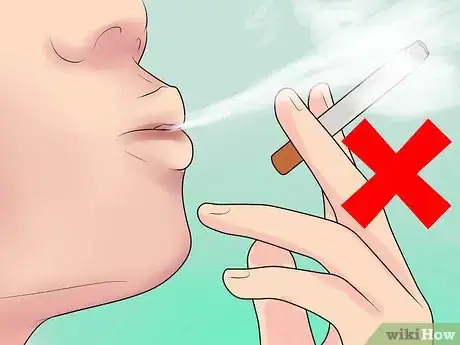
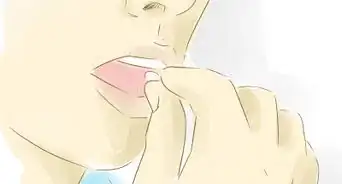


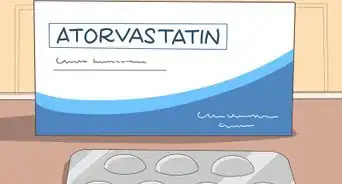




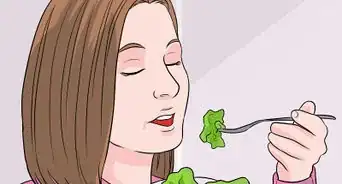
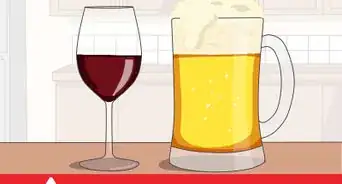
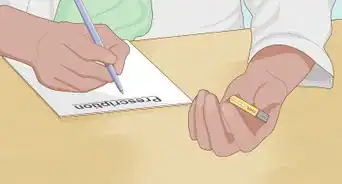















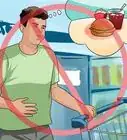
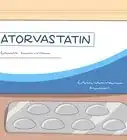



































Medical Disclaimer
The content of this article is not intended to be a substitute for professional medical advice, examination, diagnosis, or treatment. You should always contact your doctor or other qualified healthcare professional before starting, changing, or stopping any kind of health treatment.
Read More...